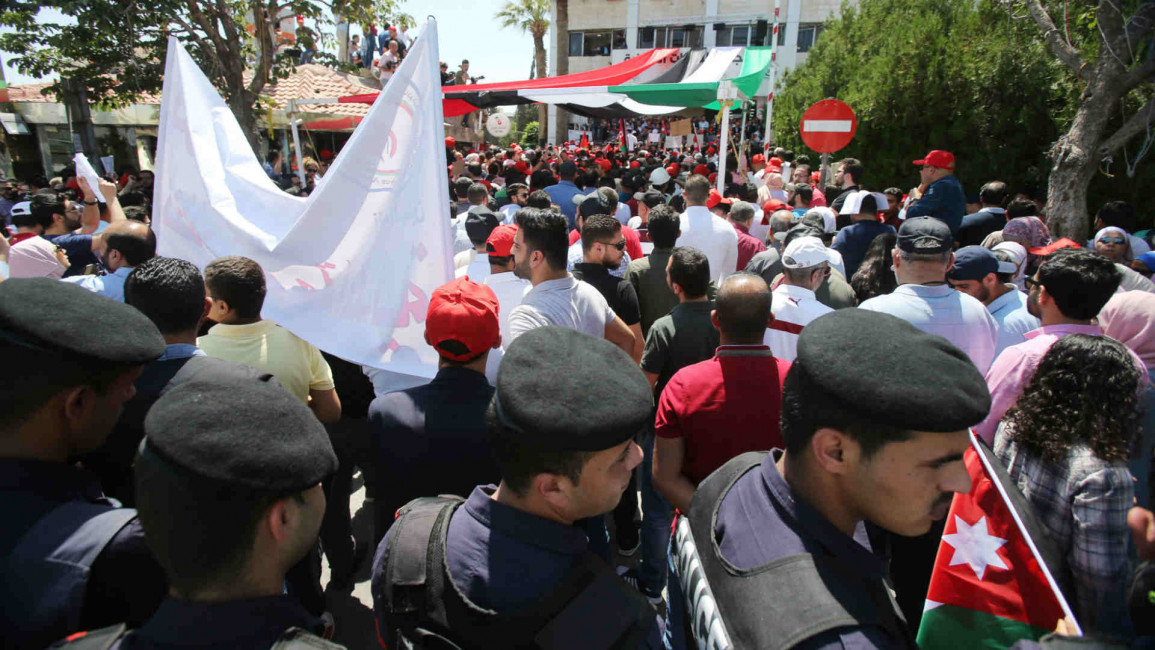Security officer stabbed as Jordan protests turn violent
The guard is thought to be in a non-critical condition and the perpetrator was arrested at the scene.
Protests continued for the seventh day on Wednesday despite King Abdullah II's call to to review the proposed tax reforms, which parliament has not yet signed into law.
Demonstrators gathered in Amman after breaking their Ramadan fast, jostling with police and waving flags. Security forces were stationed to prevent crowds from breaching the prime minister's offices, which had been closed off.
The crowds have been animated and at times boisterous, with some demonstrators sustaining injuries from an earlier stampede. Clashes have intermittently broken out between security forces and protesters.
King Abdullah appointed a new premier Omar al-Razzaz to quell popular protests, saying a comprehensive review was necessary to "avoid unjust taxes that do not achieve justice and balance between the incomes of the poor and the rich".
Twitter Post
|
Late on Monday, the king had warned Jordan was "at a crossroads", blaming the economic woes on regional instability, the burden of hosting hundreds of thousands of Syrian refugees and a lack of international support.
But protesters have said they seek real change, including scrapping the tax bill, dissolving parliament and sacking corrupt officials, and that appointing a new premier without fundamental reforms is irrelevant.
It's unclear whether Razzaz would have such a mandate.
Last month the government adopted a draft income tax law, yet to be approved by parliament, aimed at increasing taxes on employees by at least five percent and on companies by between 20 and 40 percent.
Last week it announced a new price hike for electricity and fuel before revoking it under orders from the king following protests.
They were the latest measures in a series of economic reforms since Amman secured a $723-million three-year credit line from the IMF in 2016.
The loan, intended to support economic and financial reforms, has the long-term objective of reducing Jordan's public debt from about 94 percent of GDP to 77 percent by 2021.
Agencies contributed to this report.


![Minnesota Tim Walz is working to court Muslim voters. [Getty]](/sites/default/files/styles/image_684x385/public/2169747529.jpeg?h=a5f2f23a&itok=b63Wif2V)




![Debris near Rafic Hariri International Airport [Getty]](/sites/default/files/styles/image_330x185/public/2176162423.jpeg?h=a5f2f23a&itok=MCSK9mkM)
![An Israeli air strike on Jabalia killed teenage journalist Hassan Hamad [Screengrab/X]](/sites/default/files/styles/image_330x185/public/2024-10/hassan%20hamad1.jpg?h=c12e0b96&itok=Rd_dyCVp)
